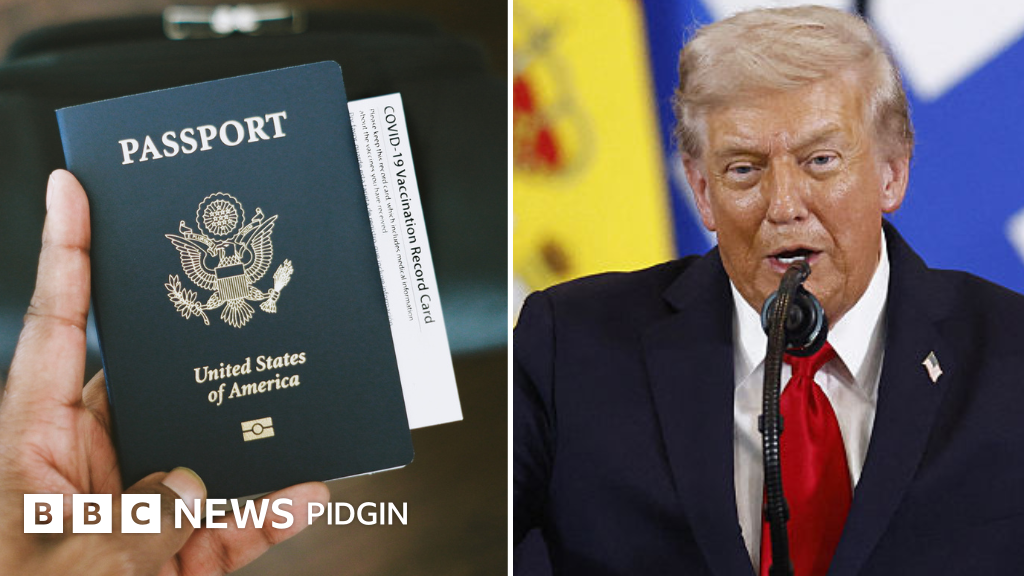The Changing Landscape of Passport Power: An Analysis
In recent global mobility assessments, the United States passport has undergone a notable decline, slipping from its long-held status among the top ten most powerful passports in the world. According to the latest data from the Henley Passport Index, as of October 2025, the US passport now ranks 12th, a significant drop from its previous positions over two decades. This shift is indicative of broader trends in international relations, global power dynamics, and the concept of soft power.
Passport Rankings: An Overview
The Henley Passport Index utilizes data from the International Air Transport Association (IATA) to evaluate the strength of 199 passports based on their ability to access 227 countries without the need for a visa. The ranking considers how many destinations can be visited visa-free. For many travelers, a higher ranking facilitates easier movement across borders, which can enhance personal, professional, and economic opportunities.
Declining US Passport Power
Historically, the US passport has been viewed as one of the strongest, granting its holders visa-free access to many countries worldwide. In fact, in 2024, it held seventh place, moving to tenth in July 2025, before experiencing this latest drop. The current ranking indicates that American passport holders can travel to 180 countries without a visa, which is considerably less than the numbers supported by some top-ranking passports.
Factors Behind the Decline
Christian H. Kälin, the Chairman of Henley & Partners, suggests that the declining strength of the US passport reflects more than just a mere reshuffling in the rankings. Kälin articulated that the changes signal a “fundamental shift in global mobility and soft power dynamics.” One potential reason for the decline includes the visa restrictions imposed by the US government, particularly under President Trump, who has issued limitations on several nations.
Visa Restrictions and Their Impact
President Trump’s administration implemented stringent visa policies for twelve countries in Africa, the Middle East, and Southeast Asia, with additional threats to further restrict access for certain African nations. These measures have not only affected the ability of citizens from those countries to enter the US but also contributed to the weakening of the US passport’s standing globally. The stringent rules that require certain African travelers to present a refundable visa bond ranging from USD 5,000 to 15,000 reflect a broader trend of tightening borders, which ultimately influences reciprocal travel policies.
Global Passport Dynamics
In the wake of the US passport’s decline, Asian countries are emerging as leaders in passport strength. Singapore currently holds the top spot on the Henley Passport Index, allowing its citizens access to 193 countries without a visa. Following closely are South Korea and Japan, ranked second and third respectively.
Conversely, countries such as Nigeria fall among the weakest passports globally, sharing the 96th position with Ethiopia, Lebanon, and Myanmar, each providing access to only 44 countries. This disparity highlights the significant differences in global mobility based on nationality.
The Strengthening of Asian Passports
Asian nations dominate the rankings, with the top-rated Singapore passport signifying the region’s increasing influence on global mobility. This trend may reflect thriving economies, growing diplomatic ties, and enhanced international relations that facilitate travel. The success of these countries in the passport rankings underscores how effective governance and international integration can bolster a nation’s standing on the world stage.
Weakest Passports: A Closer Look
While some countries race ahead, others lag significantly in terms of passport strength. Notably, four Asian nations—Pakistan, Yemen, Iraq, and Syria—top the list of the world’s weakest passports. The repercussions of limited travel freedom are far-reaching, impacting global business opportunities and personal freedoms for citizens from these nations.
In contrast, within Africa, Seychelles stands out as the highest-ranked country, offering access to 155 nations. Mauritius follows, being second on the continent with access to 148 countries. This juxtaposition of strong African passports against those that are relatively weak illustrates a complex web of international relations and mobility.
Emerging Patterns
As passport rankings fluctuate, trends in global mobility emerge. Countries perceived to exert soft power through tourism, trade, and diplomacy may find their passports gaining strength, while those embroiled in political strife or protected by restrictive policies may find their citizens faced with limited travel options.
The landscape of global mobility is continually shifting, and the results of such rankings closely mirror the geopolitical climate. As countries navigate international relations, the ease of travel for citizens reflects broader themes of openness and engagement with the global community.
This discussion on passport power encapsulates not just a bureaucratic metric, but a narrative about the world we inhabit and the connections—or barriers—we face as global citizens.



